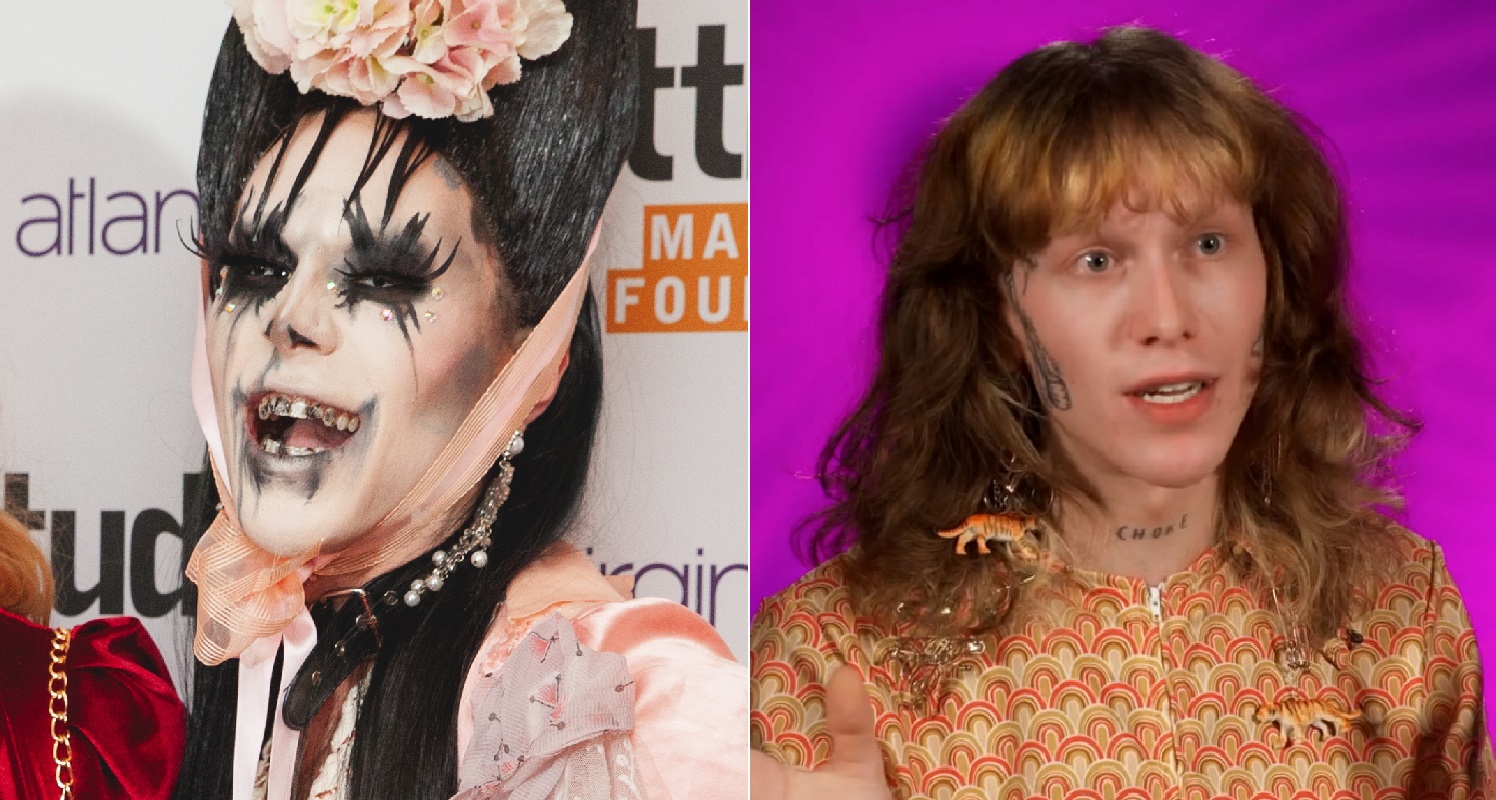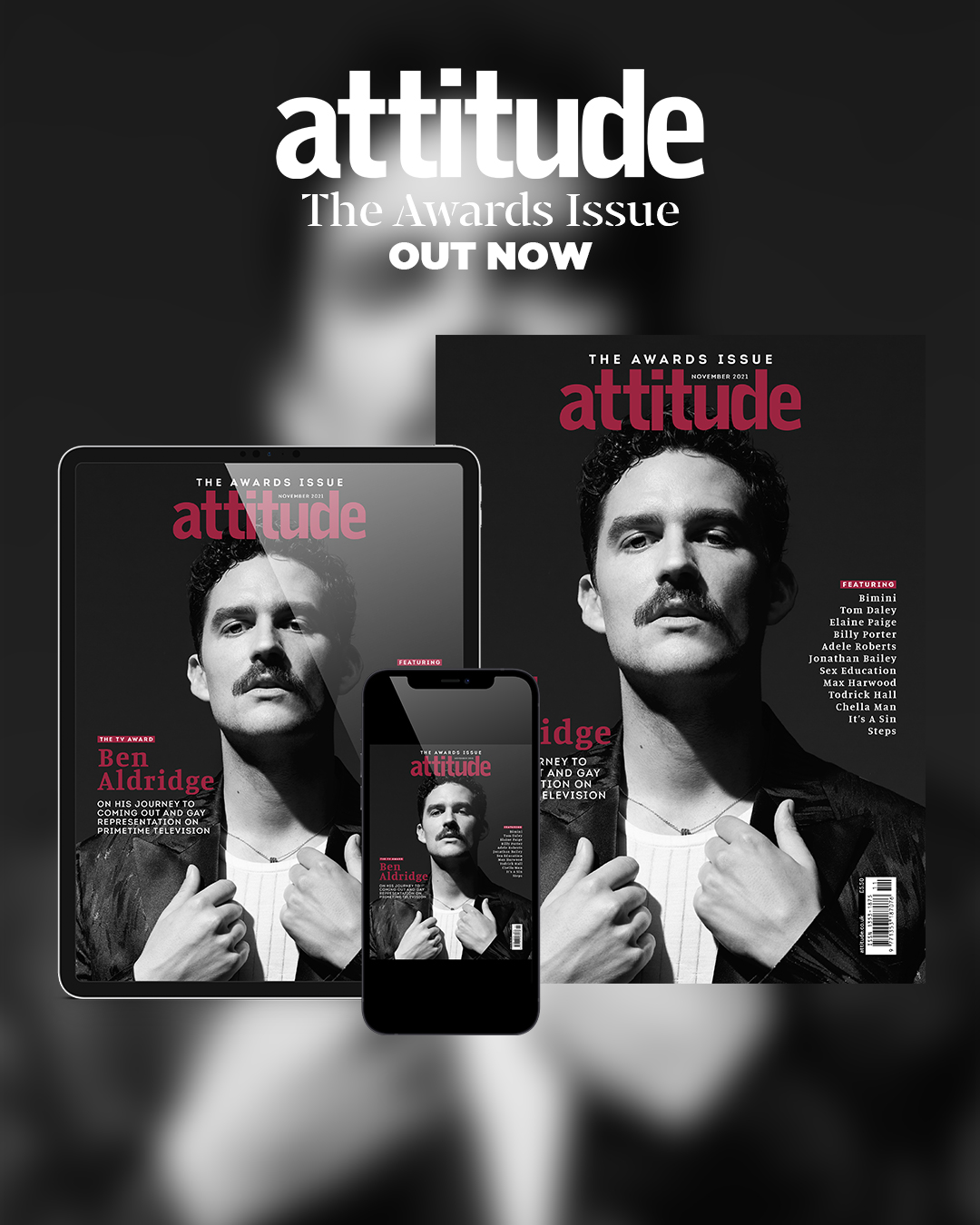Drag Race UK’s Charity Kase on contracting HIV at 18: ‘I was still a child’
"I take three tablets a day and I live a normal life expectancy. I am undetectable; that means the virus can not be passed on from me."

Words: Alastair James; pictures: BBC
RuPaul’s Drag Race UK‘s Charity Kase has opened up about being HIV-positive at 18, and the difficulty of processing that when she was “still a child”. She’s also discussed the trauma she experienced as a result of the lingering stigma around HIV.
In this week’s episode, the queens were asked to prepare two looks for the runway fitting the categories: Happy Camper and Camp Fire Couture. In an intimate moment during the process, Charity Kase spoke with her fellow queen Kitty Scott Claus about her HIV status and the stigma that still exists around the virus.
Discussing how they got started in drag, Charity Kase explained that she used drag as a way of expressing herself and therapy after going through “a really dark time” after moving to London aged 17.
“I was still a child”
While she was out in the London scene aged 18 Charity said she contracted the virus, which was “really hard for me to process that at 18, I was still a child,” she told Claus.
Speaking in a confessional, Charity said: “From that one night I contracted HIV, I contacted lots of other STIs. And that’s really difficult because six years on I am still living with the after-effects of this one night where this guy took advantage of me.”

Left to right: Charity Kase, Scarlett Harlett and Krystal Versace at the Virgin Atlantic Attitude Awards, powered by Jaguar (Photography: Kit Oates)
Asked by Claus about how it impacts her sister’s dating life, Charity explains that she’s been told on dating apps that she’s “diseased”, “disgusting”, and has been told to stay away from people, which she describes as being “degrading”. She continued: “The trauma of being diagnosed with HIV comes from the stigma of HIV and it’s really sad that that’s still such a thing.”
In her confessional Charity admits to not knowing much about HIV when she was first diagnosed, but that she was taught to feel ashamed. In an interview with the BBC released after the episode, she also reveals that she fell out of a relationship with her then-partner and quit her job at the time due to being sick before going on medication.
Continuing her chat with Claus in the werkroom, Charity tears up while adding that she would love to be in a relationship but she is wary of such things due to “I just don’t feel capable putting myself in that place where I’m so vulnerable that someone can tear me down over something.”
This is so important ❤️
Thank you @thecharitykase for sharing your story. #DragRaceUKArt by @Dom_and_Ink pic.twitter.com/imsX7yn5qQ
— RuPaul’s Drag Race UK (@dragraceukbbc) October 7, 2021
Charity is also able to use the moment, and the platform offered to her by the show, to explain how effective current HIV treatments are. “I take three tablets a day and I live a normal life expectancy. I am undetectable that means the virus can not be passed on from me.”
This means treatment has reduced the viral load in her blood to such a low level that it can’t be detected by a test or passed on to someone else.
She goes on to say that she is now proud and comfortable with who she is and that drag provided a way of dealing with things and distracting herself from the dark places, which she admits she can still go to.
Kitty Scott Claus provides us all with some much-needed love in the moment, caring for her sister and telling her: “When someone says ‘Charity Kase’, I think confidence and it’s this whole persona. You’re a f******* rockstar.”
Charity ends the portion of the show by urging people to talk about HIV as a way of ending the stigma that she, and many others, have had to deal with, and sadly still do.
“We’ve made so much progress”
Responding to Charity’s admission on Drag Race UK, Ian Green, the Chief Executive of the HIV charity The Terrence Higgins Trust has said it’s “incredible” to see Charity using her platform in such a positive way.
“As Charity explains, we’ve made so much progress in the fight against HIV – including that people on effective treatment can’t pass on the virus and can expect to live just as long as anyone else.
“However, public awareness about HIV hasn’t caught up with the medical advancements. Stigma and misconceptions about the virus continue to halt progress and lead people to feel shame, fear and anguish about their diagnosis.
He says this is a big problem as to why stigmas remain in the UK, and that people like Charity are key to changing that.
The Trust recently joined up with other HIV organisations to call on the UK Government to commit funding to the goal of ending new HIV diagnoses in England by 2030 in the next Spending Review later this month. A cause the government has publicly supported before.
Speaking exclusively to Attitude, Richard Angell, the charity’s Campaigns Director, said it would be a “moral failing” if the government lost sight of that now.
There are around 106,000 people living with HIV in the UK, many of whom, charities say, are twice as likely to experience poor mental health due to stigma and misinformation. Around 80 people are diagnosed with HIV every week.
The Attitude Awards issue is out now.
Subscribe in print and get your first three issues for just £1 each, or digitally for just over £1.50 per issue.

This is so important ❤️
Thank you @thecharitykase for sharing your story. #DragRaceUKArt by @Dom_and_Ink pic.twitter.com/imsX7yn5qQ
— RuPaul’s Drag Race UK (@dragraceukbbc) October 7, 2021
